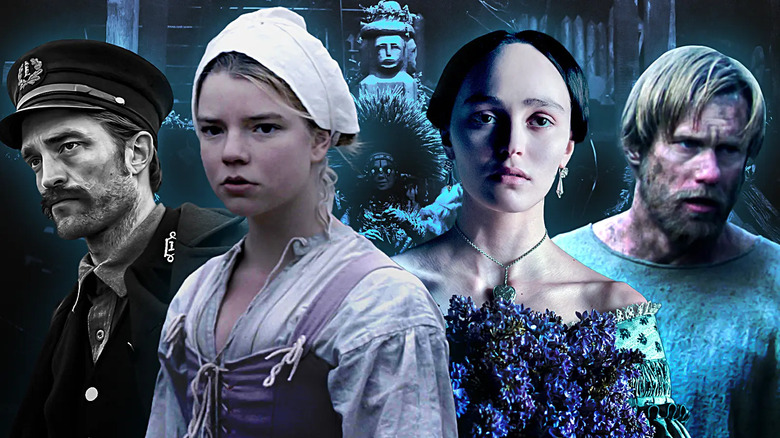
Static Media
In an impressively short amount of time, Robert Eggers has made a name for himself as a unique, acclaimed filmmaker. After bursting on the scene in 2015 with "The Witch," Eggers has helmed a series of strange, dark, memorable films known for their supernatural and otherworldly stories as well as their devotion to meticulously recreating the past. Every Eggers movie so far, including this year's vampire horror extravaganza "Nosferatu," is firmly set in a bygone era, and Eggers and his teams take great care into making these slices of history feel authentic, as if we're not so much watching a recreation but actually gazing back into the past itself. To date, all of Eggers' films are either full-blown tales of horror or at the very least brush up against horror, and he's become a favorite for fans of the genre. Speaking for myself, I can unashamedly say I either like or love all of Eggers' films to date. Even the "weakest" of his films is still pretty damn good, and I'm genuinely excited whenever a new Robert Eggers picture arrives. In honor of "Nosferatu" (you can read my review right here), I've gone ahead and ranked all four Robert Eggers films. Remember: I think all of these films are good. It's just that some are better than others.
4. The Northman
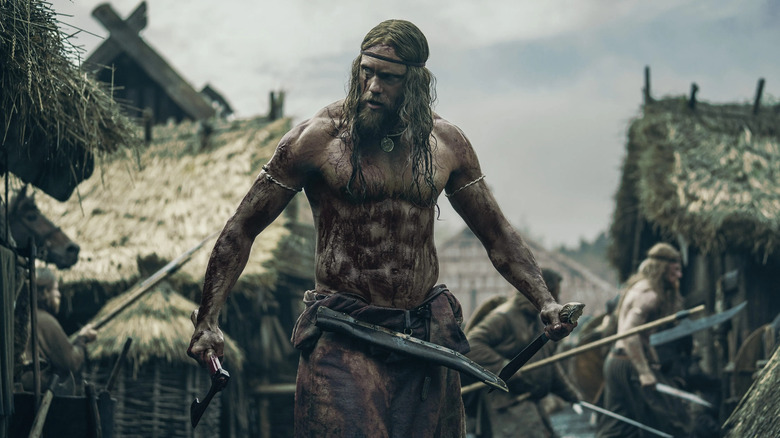
Focus Features
After two relatively small films, Robert Eggers was handed his biggest budget yet for "The Northman," a star-studded Viking epic that blends "Hamlet" with Norse mythology. As the film begins, young Amleth, a Viking prince, watches as his beloved father, King Aurvandill War-Raven (Ethan Hawke), is murdered by his uncle, Fjölnir (Claes Bang). Fjölnir marries Amleth's mother, Queen Gudrún (Nicole Kidman), and assumes the throne, while Amleth escapes and swears to get revenge some day. Years later, Amleth is all grown up and played by an alarmingly ripped Alexander Skarsgård, looking like he's been chiseled from the trunk of a tree. After disguising himself as a slave, Amleth returns home with a plot for vegnance. Along the way, he teams up with an enticing sorceress named Olga (Anya Taylor-Joy) and sets about slaughtering anyone who gets in his way. "The Northman" is handsomely mounted and full of memorable moments (Björk even shows up, playing a blind witch!), but while Eggers is right at home embracing the bits of mythology that add color to the film, he seems uncomfortable (and slightly out of his depth) filming several of the big action scenes.
3. The Witch
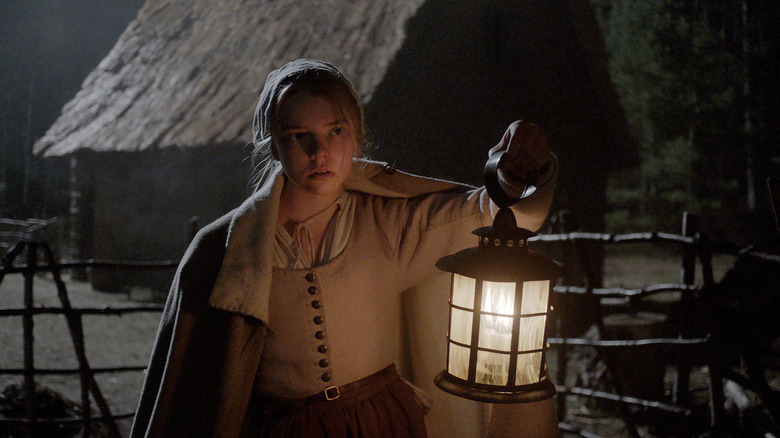
A24
In 2015, Robert Eggers arrived seemingly out of nowhere with "The Witch," the film that kick-started Anya Taylor-Joy's path to stardom. In her feature debut, Taylor-Joy plays Thomasin, a teenage girl living with her family at the edge of woods in 1630s New England. The piety of Thomasin's father (Ralph Ineson) got the family banished from their Puritan community, and now they live secluded, struggling to survive. One day, Thomasin's newborn baby brother vanishes, seemingly right in front of Thomasin's eyes, and this event unleashes a wave of malevolent misfortune upon the family. Is it just bad luck, or are there supernatural forces at work? With his feature debut, Eggers proved to be shockingly assured: this doesn't feel like someone's first go around behind a camera. Eggers knew exactly how to build dread, all while taking great pains to recreate the film's historical trappings. All of this builds towards one of the most memorable finales in horror history, when the family's goat, Black Phillip, reveals he's a lot more than a piece of livestock. Scary in an almost elegant way, "The Witch" marked a wonderful beginning to Eggers' feature filmmaking career.
2. Nosferatu
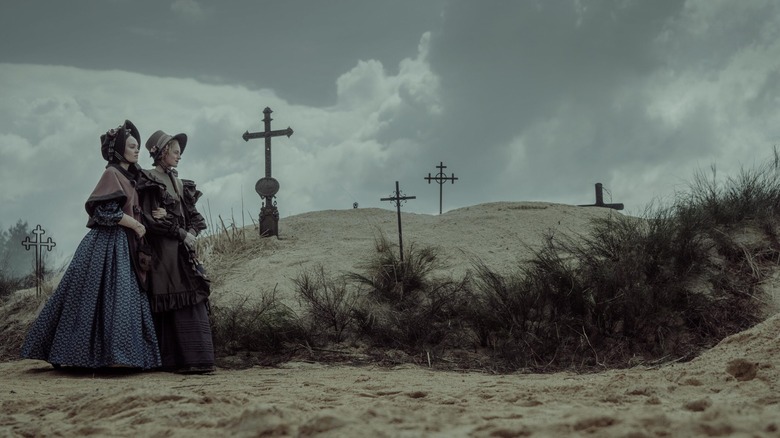
Focus Featurres
Eggers' latest does the impossible: it makes vampires scary again. With his take on "Nosferatu," Eggers isn't exactly treading new ground: not only is the film drawing on the many different adaptations of Bram Stoker's "Dracula," but it's also a remake of F.W. Murnau's 1922 silent classic, which was, of course, "unofficially" adapting Stoker's novel. Yet even though the story of "Nosferatu" will be familiar to vampire fans, Eggers manages to make his movie genuinely fresh and scary thanks to both his attention to detail and his game cast. Lily-Rose Depp is something of a revelation playing Ellen, a tormented, melancholy young woman who becomes the target of Count Orlok, an ancient vampire who travels to Germany to seek her out, unleashing death and plague along the way. Channeling Isabelle Adjani's terrifying performance from "Possession," Depp quite literally throws herself into the role as she grapples with her own inner demons which serve as a kind of catnip to Orlok. As for Orlok himself, he's played by Bill Skarsgård, who lowers his voice an octave and creates one of the most memorable movie vampires in recent memory. Skarsgård's Orlok, with his guttural accent and waxen skin, feels positively inhuman as he stalks about the shadows of the film. Eggers makes all of this very scary, but he remembers to have fun, too, by throwing in Willem Dafoe as a wacked-out vampire hunter and Aaron Taylor-Johnson as a stuffy aristocrat who can't understand why all the women around him are acting so hysterical. "Nosferatu" feels like Eggers' most refined film yet; a summation of everything he's learned so far, employed to great effect.
1. The Lighthouse
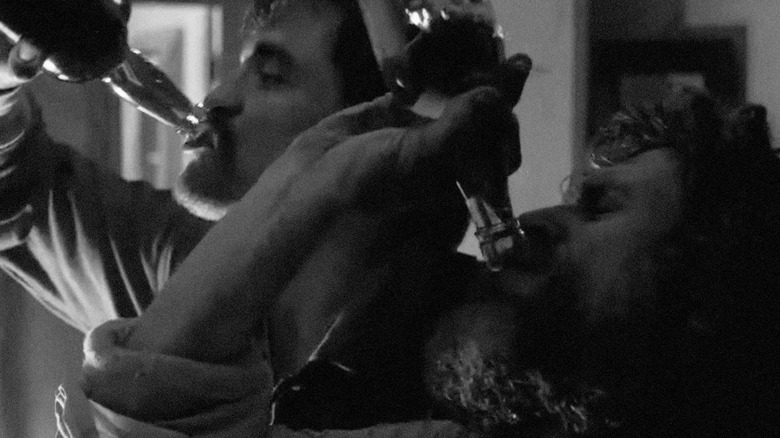
A24
Strange, spooky, and absolutely hilarious, "The Lighthouse" is the best movie Robert Eggers has made so far. A feverish story of two men trapped on an accursed rock, "The Lighthouse" is a buddy picture, a psychosexual drama, a murder mystery, a dark comedy, and so much more. Small in scale but huge in impact, "The Lighthouse" proves that if you put two great actors in a cramped location and let them run wild, magic will happen. It'll be chaotic magic, but it's magic all the same. Robert Pattinson plays Ephraim Winslow, a drifter who has taken a job as a "wickie," helping to maintain a lighthouse on a desolate island off the coast of New England. Winslow's coworker and superior is Thomas Wake, a flatulent drunk played to the hilt by Willem Dafoe (Dafoe has been in three of Eggers' four films so far, and I hope they keep working together forever). Wake gives Winslow all the back-breaking grunt work, while he gets to tend to the light up in the lighthouse tower. Resentment builds, and with it comes madness as time begins to lose all meaning and both men swiftly go off the deep-end. You can sort of make sense of all of this if you pay close attention, but ultimately, that doesn't really matter. What matters is the sense of lunacy Eggers and his two leads are able to create as the film barrels towards its ghastly conclusion.


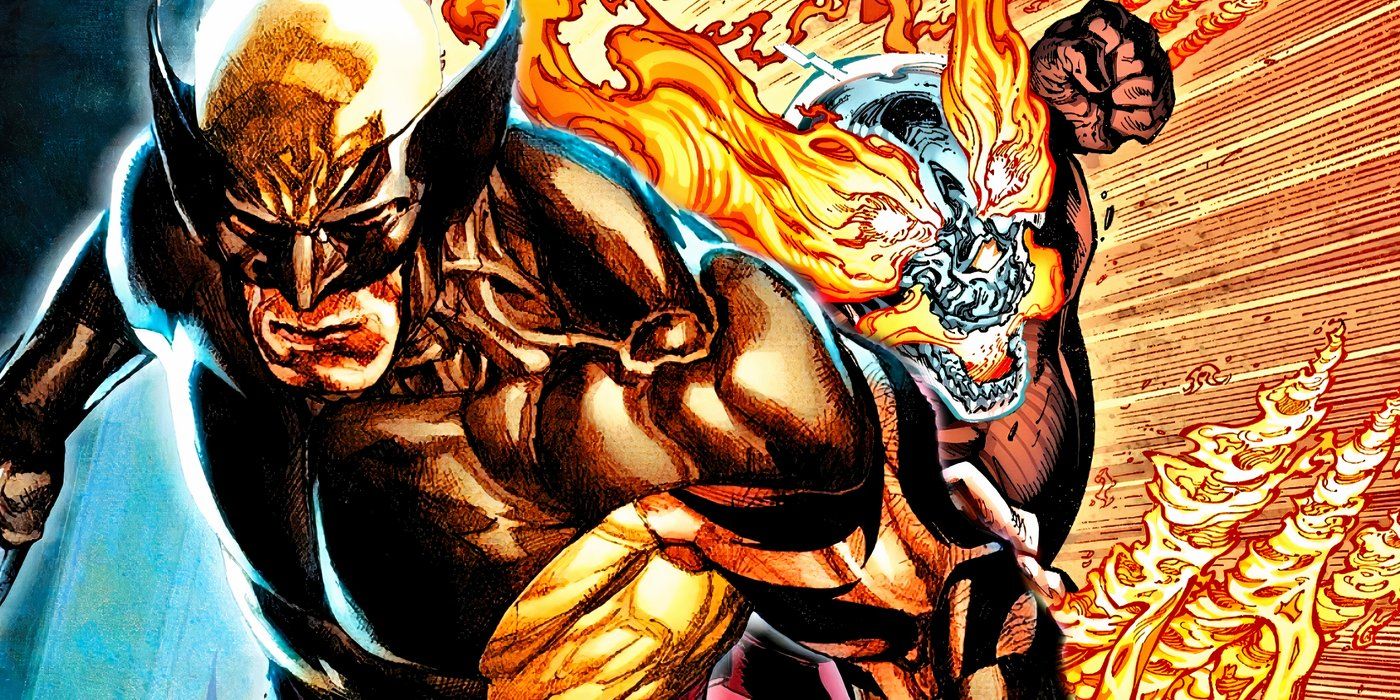






 English (US) ·
English (US) ·